"Dante Alighieri" is a rather un-German name for a Kaiserliche Marine ship. Did Germany trade for ships from abroad?
The Middle Republic - A KR Republic of China AAR
- Thread starter Zzzzz...
- Start date
-
We have updated our Community Code of Conduct. Please read through the new rules for the forum that are an integral part of Paradox Interactive’s User Agreement.
You are using an out of date browser. It may not display this or other websites correctly.
You should upgrade or use an alternative browser.
You should upgrade or use an alternative browser.
"Dante Alighieri" is a rather un-German name for a Kaiserliche Marine ship. Did Germany trade for ships from abroad?
Captured enemy ships keep their names. I'm guessing that the Dante here was appropriated from the late South Italy.
Just read through all of this, its a very entertaining tide. Looks like you will be done soon and the Chinese Republic shall dominate the entire world.
That's what you get when you mix CVs and BBs LOL!NOOOOOOOOOOOO!So much cute and adorable Super heavy battleships was sunk :'(
"Dante Alighieri" is a rather un-German name for a Kaiserliche Marine ship. Did Germany trade for ships from abroad?
I have no idea. But blitz give a nice explanation.Captured enemy ships keep their names. I'm guessing that the Dante here was appropriated from the late South Italy.
Yep. It will end soon. But I want the ending to be a blast!Just read through all of this, its a very entertaining tide. Looks like you will be done soon and the Chinese Republic shall dominate the entire world.
-------------------------------------------------------------------------
------------------------------------------------
Wild Hopes
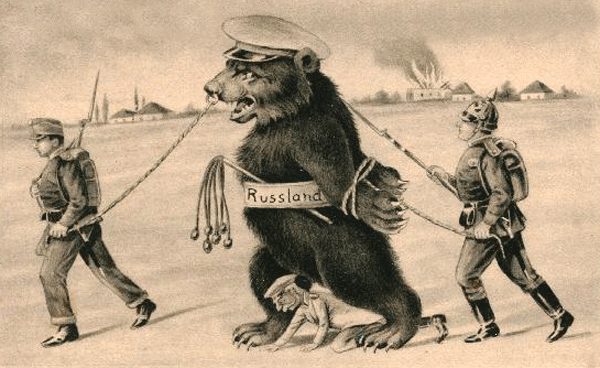
Anti-Russian propaganda
The Chinese doctrine of fighting have always put an emphasis on good quality, all-volunteer, standing army, rather than the draft peasant armies of the ancient regime. This is one of the components of the Grand Battle Plan. This is also supported by the ruling parties, knowing that the population, who has the power to vote out a party, wouldn't like the idea of a manpower-draining attritional warfare, no matter how good the censors are.
The Winter of 1953/54 in the European front was different with the rests. The ruthless counter-attacks by the Shanghai-Russian forces have dispersed the Chinese armies along the bulge of the Baltic pocket. The pocket isn't in grave danger though. Supplies went freely through the Baltic Sea and into the main supply depot in Tallinn. Along with the supplies are fresh troops ready to reinforce the pocket's defences, and hold out until help arrives. The Russians can't do anything in the Baltic Sea since their navy was sunk during the Second Russian Civil War.
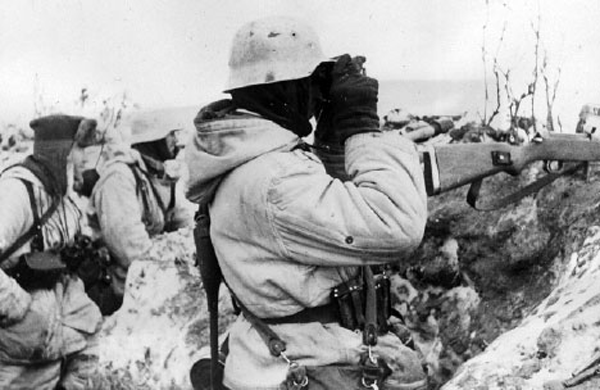
The Winter of 1953/54 is harsher towards the Germans, depleting their limited manpower
Endless allied attacks results in heavy casualties on both sides for no progress gained. The coordination and trust between the two armies have also deteriorated. Whenever an attack is launched, which mostly ended in defeat, one side often fall back out of action to refit, fuelling the contempt of the other. The rift between Russia and China have continue to widen through the winter.
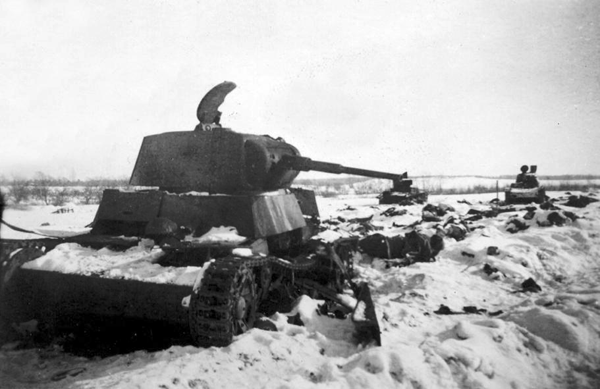
Destroyed Russian tanks
Both sides received heavy casualties during the so-called 'Deathly Winter'.
Due to the destruction of the land and its infrastructure, and army foraging
millions of Russians, Germans, Baltics, Ukrainians and Belarussians died of starvation and cold
The disagreement on what to do after Plan Peter is still unsolved. Russia wants to return to its pre-WW1 borders and the claiming of Belarussian and Ukrainian ancestral lands. This means going to war with Austria-Hungary. Despite the old empire's great internal weakness, the Republic has no stomach to go to war against them. Many Chinese generals now want to move their focus to the Far East to knock out Australasia fast, the European Front will be safe after the destruction of the Baltic pocket they said, the navy agrees with the army's opinion.
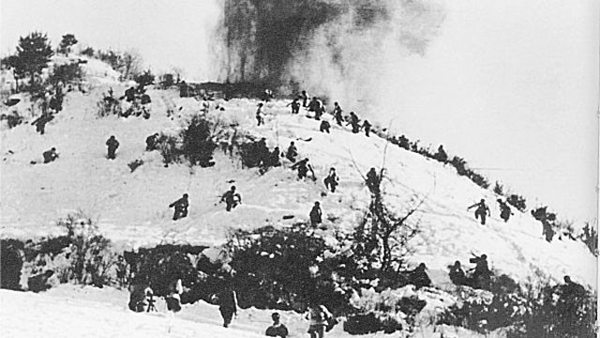
Russo-SDC soldiers charging forwards
-----------------------------
Winter has ended, snow turned to mud as Summer is approaching. The disorganised coalition, and Chinese's out of character tactics needs to be solved immediately.
The Chinese have developed a strategy that the Chinese forces shall be concentrated together as much as possible. Like an iron fist, the concentrated forces will be the main battering ram into the German lines. The Chinese delegated tributary troops to man the other parts of the front, or to support the Chinese advance if possible. The Chinese have also resorted secretly on using Russian and tributary forces as “attrition units”, units that will bleed the Germans dry. This also means that the attrition units would be bled too.
The allies pulled back most of its troops to reorganised the line, the Germans saw what was happening and attacked. At 16th of May 1954, the salient was pushed back, inflicting losses to the Chinese forces there, and opened a land connection to the Baltic pocket. The forces of the Republic regrouped east of Minsk, and readying themselves for a grand counter-attack.
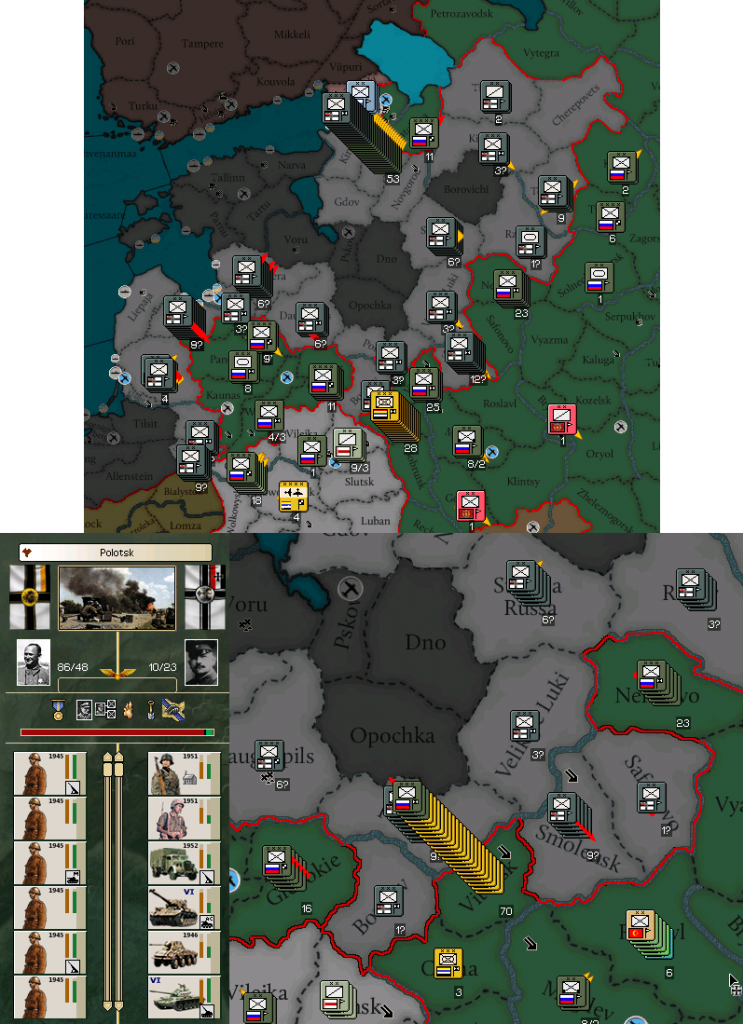
The Russian and some tributary forces held their ground in Gatchina. Instead of going to the safety of St. Petersburg, providing a more defensible position for the desperate troops, the trapped forces went north. The decision was correct, the city isn't safe anymore. The German forces have advanced to Tikhvin, and onto Petrozavodsk, completely sealing the Lake Ladoga. An artillery strike on the city granary was the last nail in the coffin for the city of St. Petersburg. The city garrison surrendered.
The vanguard of the encircled forces secured Tikhvin, but the Germans are trailing behind closely. A Russian army of 8 divisions have managed to reach Torzhok. Alas, the rescue attempt was too weak to punch through the German lines. 38 divisions were neutralised.
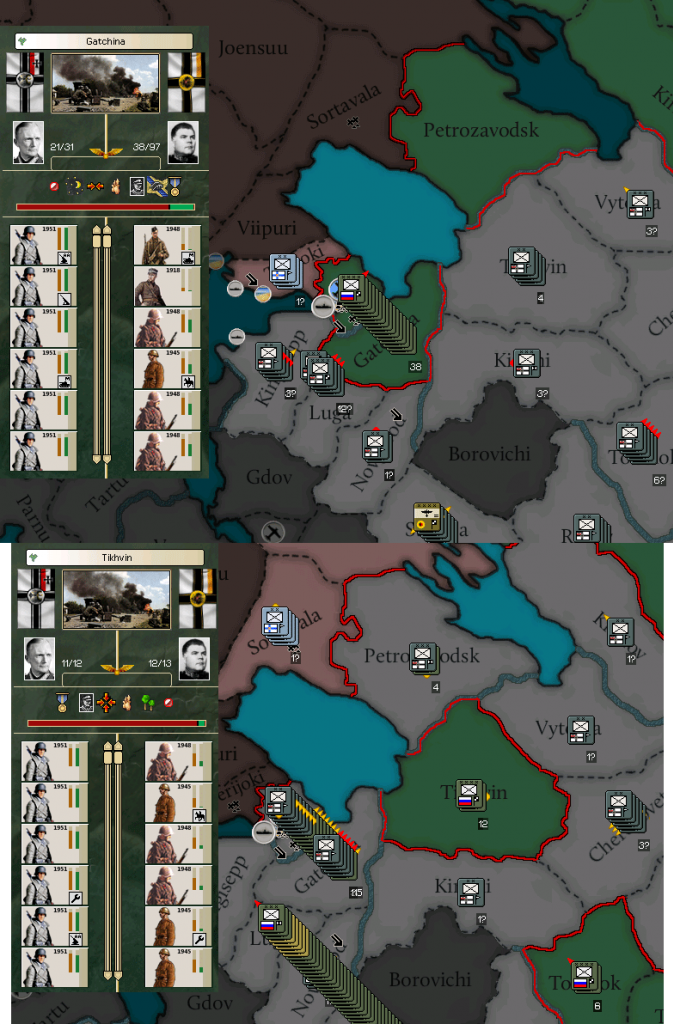
The Russians have also regrouped and concentrated their forces. The Russians are poised to pierce the line towards St. Petersburg. The Chinese smashed through the west, targeting the Baltic cities of Riga, and Tallinn. By June, the new strategy bears fruit. The pocket was resealed, and is now in the process of being reduced by the allies.
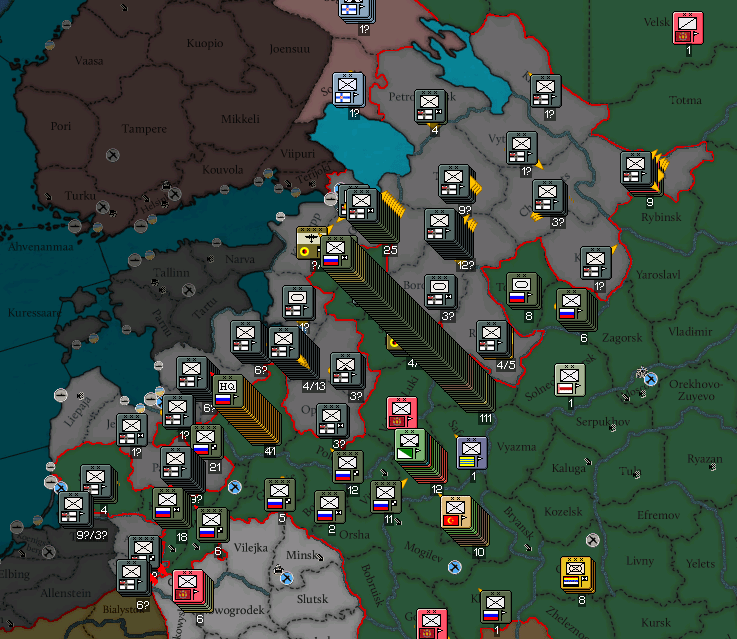
-----------------------
1954 Elections
The news of the 'Deathly Winter' have dampen the morale of the masses. The Young China Party exploited the news, and quote: “promise to end the war”. Of course, the devil is in the details. They didn't exactly promised peace, they promised victory. The tune was catchy to the war-weary but proud Chinese. China shall leave her wars, but she will leave victorious.
The trend of anti-war and pacifist sentiments began to grow within the grassroots of Chinese politics. The former claims to be a supporter of the military and Chinese martial might but is against the war. The Pacifists are more radical in comparison to mainstream Chinese society; they are against the wars, and also to the military establishment. These trends were more prominent among the younger generation who were born and grew up on an independent China, free from the colonial German East-Asia Company, the despotic Qing Emperor, and the invading Japanese. These movements was supplemented by an increasing number of anti-war veterans. Only the tight control of the censors and the creativity of the propagandists holds the flood from pouring through.
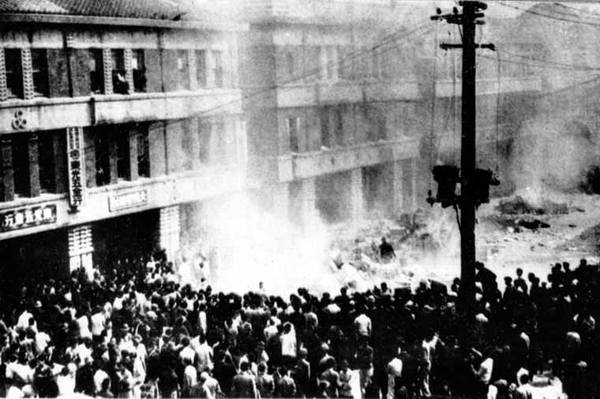
Anti-war protest was put down quickly by the police
Despite the staunch floodgates holding the anti-war feelings on check, it is starting to creep into the political elite. The Conservatives are the first to embrace it, calling for a massive reduction of the awesome power of the state. The party has slowly changed itself from a pro-warlord party, promoting a pseudo-feudal system of governance, to a small-state party slowly being populated by classical-liberals. However, there are still substantial number of old guards remain in the party, and the party continues to be a pariah due to its political past, especially the Yunnan rebellion that many of its members are associated with.
Anti-war sentiments also crept into the Democrat Party with members who are already pro-peace. This could pull the coalition apart, as the Liberals remains pro-war to expand the Shanghai Network's economic clout. Nonetheless, the YCP seems likely to win the election, with the population tried of the long Democrat-Liberal coalition rule. The YCP plans were ambitious. One of them is the complete elimination of Western power in the Pacific. Public mood swung towards YCP with wild hopes of victory and peace.
The results are:
Democrat Party – 391
Liberal Party - 578
Conservative Party – 324
Young China Party – 1575
Independents – 132

Democrat Party – 391
Liberal Party - 578
Conservative Party – 324
Young China Party – 1575
Independents – 132

The new cabinet has the YCP top leaders taking the high offices of the Republic. Zing Qi became the 'Great Sun' of the Republic, as Madame Sun declared she won't run for President again and retires. Zing Qi remains a person lacking of charisma, it was his wild ambition and hope that Chinese troops would be marching through the Pariser Platz that won him the vote against his bland and moderate competitors. A chief of the army was appointed by Sun Li-Gen and approved by the new Prime Minister. Xu Tingyao specialises on the use of armoured spearhead. This is perfect for the new modernising ROCA.
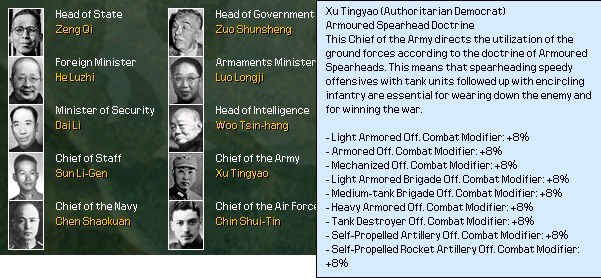
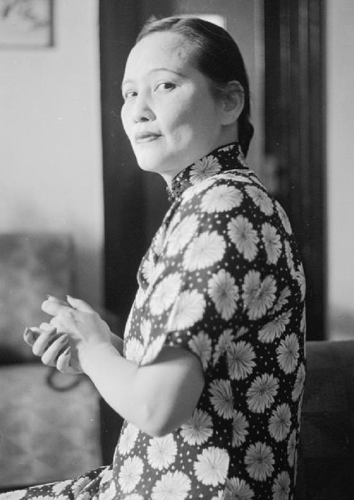
Goodbye Madame Sun
The promise of victory and peace received its first blow when the Malorussians and the Belarussians, with Moscow's support, committed unprovoked aggression to the Polish state under legal protection from Vienna for some stretch of land that they claim. The Republic's careful avoidance of pulling the Habsburg Empire into the conflict turned into a fiasco. The empire called for mobilisation. It's too late to keep their neutrality now. The Habsburg Kaiser-Konig must declare war against the Rus states and to the Shanghai Network, or be damned by his subjects and lose face, probably his head too.
The declaration of war have opened the flanks of the SDC forces with most of its forces still in the north. The morale among the Chinese officers and soldiers isn't good.
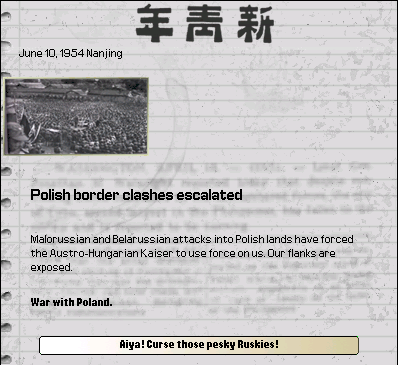
-------------------------
In the Pacific, the perfected Massed Assault incurred heavy casualties against the Indonesians. The mastery of the use of artillery and concentrated combined-arms assaults decimated the enemy using inferior equipment and tactics. The ROCA tore through the lines and speed towards Jogjakarta, defended by a single motorised cavalry unit. The Indonesian government surrendered at the 10th of February 1954.
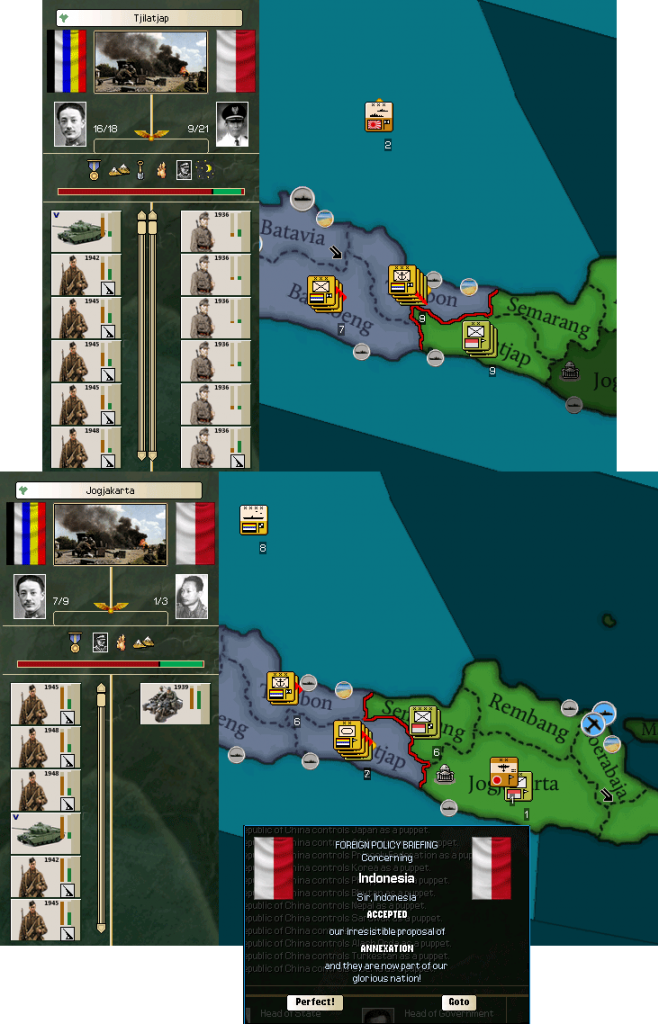
The Australasian navy was spotted near West Island, probably rushing in to help the ruined German fleet. The enemy fleet sunk the transport ships but they didn't managed to shoot a single fire at the Chinese fleet due to the massive swarm of naval planes harassing them. The battle ended without sinking any of the Australasians. However, the battle gave the Chinese a good look at the opposing navy. Four battleships, five battlecruisers, and one light carrier, with escort ships from heavy cruisers to destroyers.
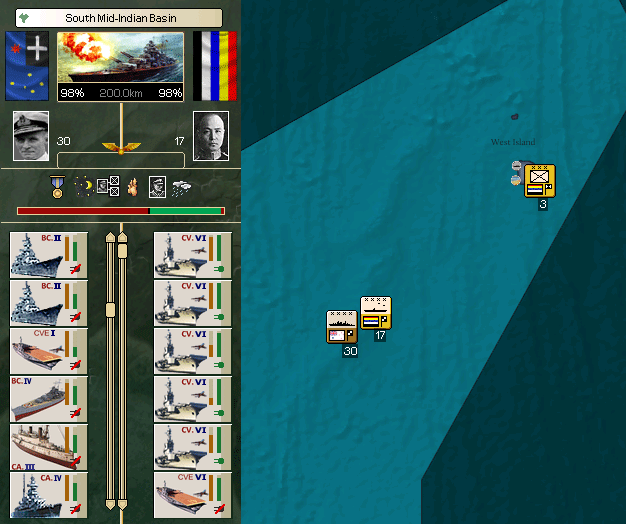
A Marine corps attacked Lae with a quest to capture Port Moresby. The German defenders were easily pushed back. Port Moresby was defended by a lone Australasian Marine division. Outnumbered and outgunned, the defenders were defeated. The launchpad for the invasion of the island of Australia is now in Chinese hands.
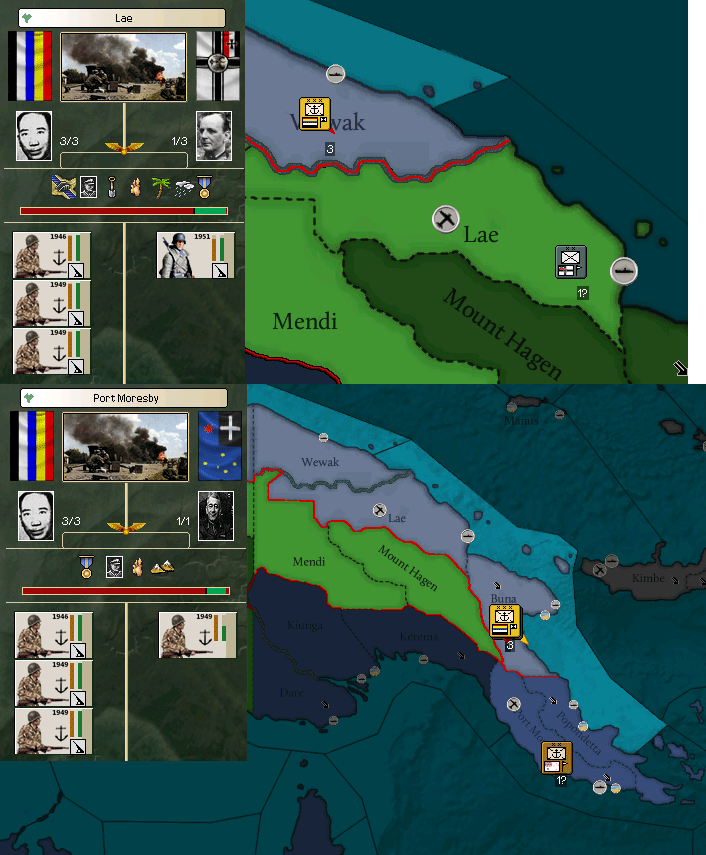
End of Chapter
------------------------------------------------
-------------------------------------------------------------------------
Last edited:
Shame about those pockets in Russia. How many troops did the Russkies lose in Petrograd?
Indonesia is finally under Chinese thumb now! It will prove as good foothold for further operations against Australasia.
Your AAR is one of those I read some time ago & it inspired me to create my own. Thanks for your continuing hard work!
38 divisions. I'm not sure how many were tributaries, probably just a few.Shame about those pockets in Russia. How many troops did the Russkies lose in Petrograd?
Yes! There shall only be one power in the Pacific!Indonesia is finally under Chinese thumb now! It will prove as good foothold for further operations against Australasia.
Thank you! I haven't catch up on yours. I suck at catching up.Your AAR is one of those I read some time ago & it inspired me to create my own. Thanks for your continuing hard work!
I know. I have no idea who they are tbh. Google gave me nothing.Those Young Chinese sure look old.
-------------------------------------------------------------------------
Chapter XI: Towards a Dark Earth
“I have saved Germany from invasion, in turn, I have condemn the world to destruction”
-Kaiser Wilhelm IV
------------------------------------------------
The King's Mountain Must Not Fall
More troops are being shipped to New Guinea, now that Port Moresby is under Chinese control and that the last defenders of the island were eliminated.
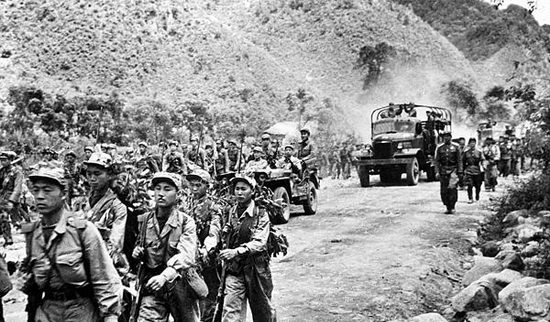
ROCA soldiers in New Guinea
The first part of Plan Wild Wind was an amphibious landing near Darwin in northern Australia. The invasion was codenamed - Operation Bear. The goal of the operation is to land and capture Darwin, establish defensive positions on the western approaches and advance towards Townsville to the east, capturing the city and its vital port.
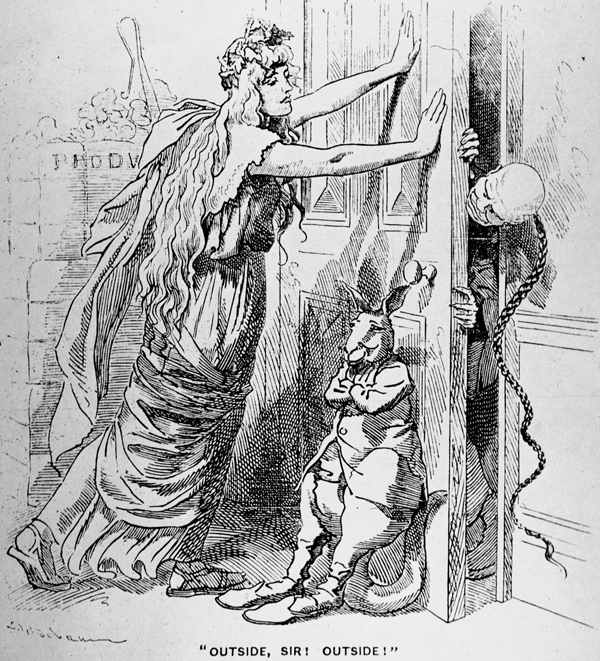
An Australasian anti-Chinese propaganda
Perhaps Operation Bear was too predictable of a plan as the Special Marine Landing Army encountered significant amount of resistance in Darwin. The landing marines fought against a good defence, half of it consists of Australasian marines. The landings were a success, but the beachheads aren't secured yet and Darwin isn't completely under Chinese control. Reports were sent to the heads of the two marines corps, stating that another significant amount of forces are spotted nearby and are rushing to crush the beachheads. The marines still has a chance of winning if they push through, but the generals believe that victory here would be costly in terms of time and manpower. The marines were then ordered to withdraw to the ships. Operation Bear was a failure.
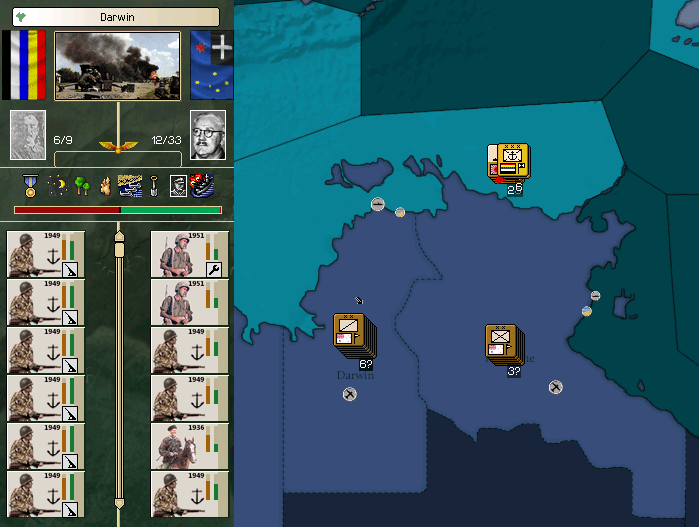
------------------------
The gigantic pocket was sliced in half. One in Estonia, still receiving supplies via the Baltic. Another one up north, in a precarious situation where St. Petersburg, a city in the frontlines, is the new supply depot. The ROCA continues to hammer the Germans in the Estonian pocket, while their Russian comrades uses their superior numbers to eliminate the Huns out of Russia once and for all.
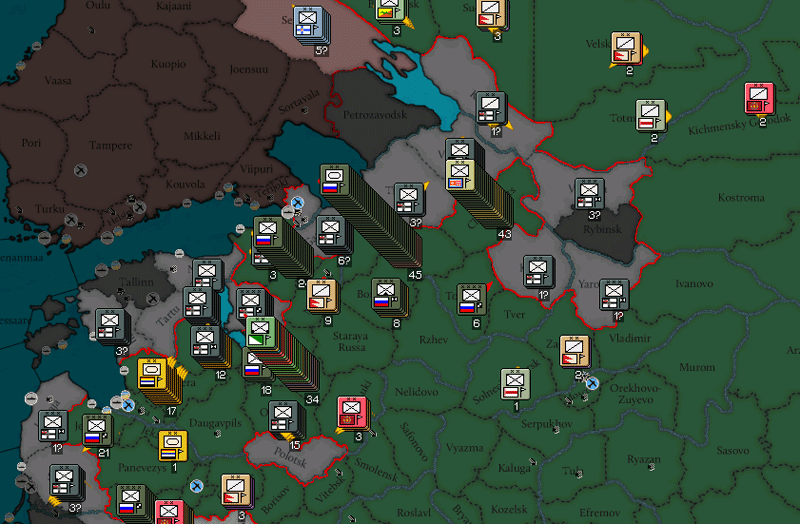
St. Petersburg was liberated by the Russian troops, welcomed by the population. The northern pocket was cut down further to two smaller chunks, all destroyed. The Estonian pocket was reduced with the assault on Tallinn. The overwhelming Sino-Russian forces made the German lines buckle. The Germans retreated to Parnu where they resisted until they retreated again to the Estonian islands.
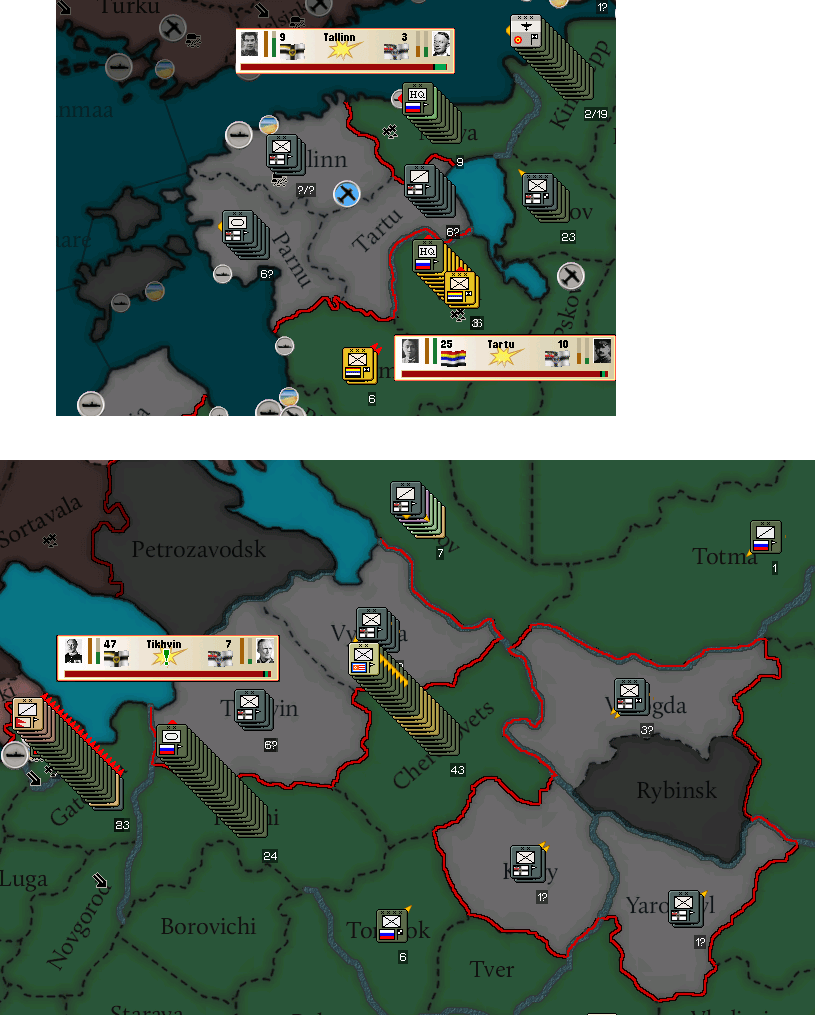
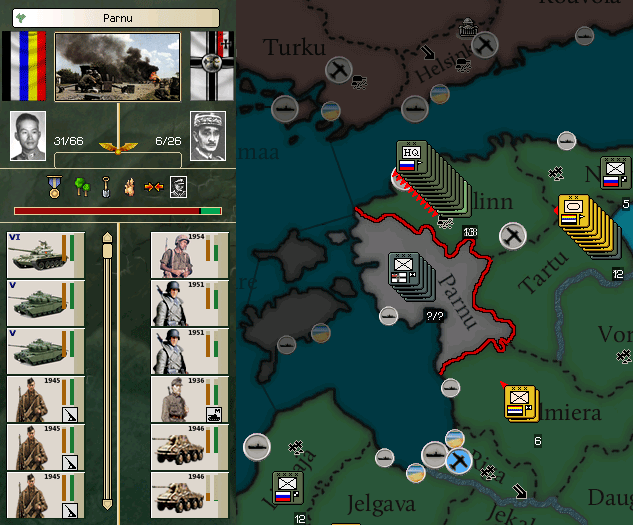
-------------------------
A German fleet consists of two super-heavy battleships with escorts on route to rendezvous with the Australasian fleet was intercepted by the Reserve Fleet that was tasked with convoy-raiding on the eastern coast of Australia. The German fleet quickly escaped the Reserve Fleet by diverting their route towards the north-east direction. But the Third Battle Fleet received the reports and cleverly surprised the enemy fleet. The two super-heavy battleships, a cruiser, and six destroyers were sunk. Only 9 destroyers reached friendly port in full disgrace.
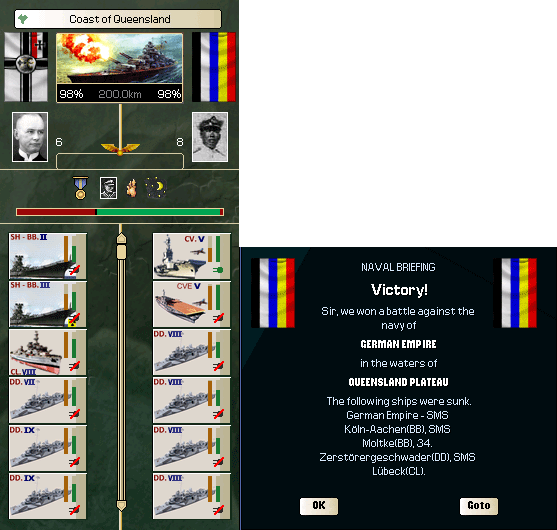
Operation Fox was greenlighted in the 13th of July 1954. The landing could have been perfect but the escorting Reserve Fleet took the bait set up by the Australasian navy, separating them and the transport ships. The Australasian navy attacked the transports sinking so many that two elite Marine divisions were lost. The commander of the Reserve Fleet was reprimanded, he later resigned from his post.
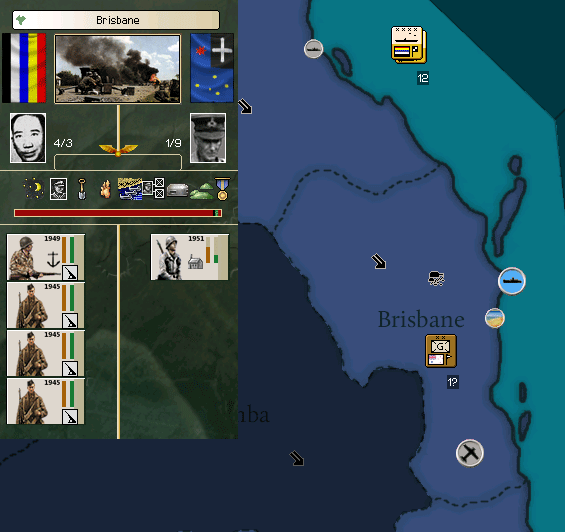
The ROCA marines have bust through Fortress Australia with Operation Fox. The planners have bypassed the strong northern defences and decided to land in Brisbane with only a coastal division in it, secure the city, and advance on both directions. One part would move towards Townsville in the north, and set up a defensive line. The southern advance would go all the way to Adelaide.
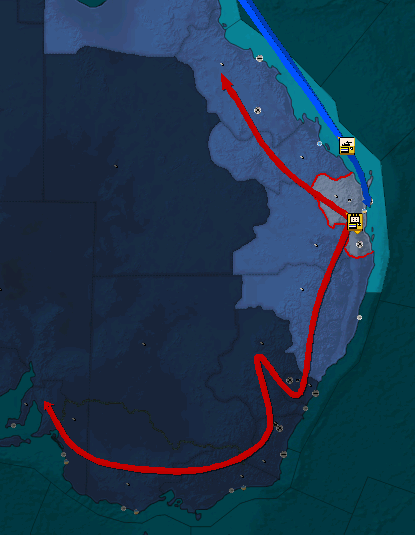
Operation Fox
The transport fleets immediately pour in fresh infantry. Townsville is within reach, and the ROCA won the Battle of Newcastle against an outnumbered foe.
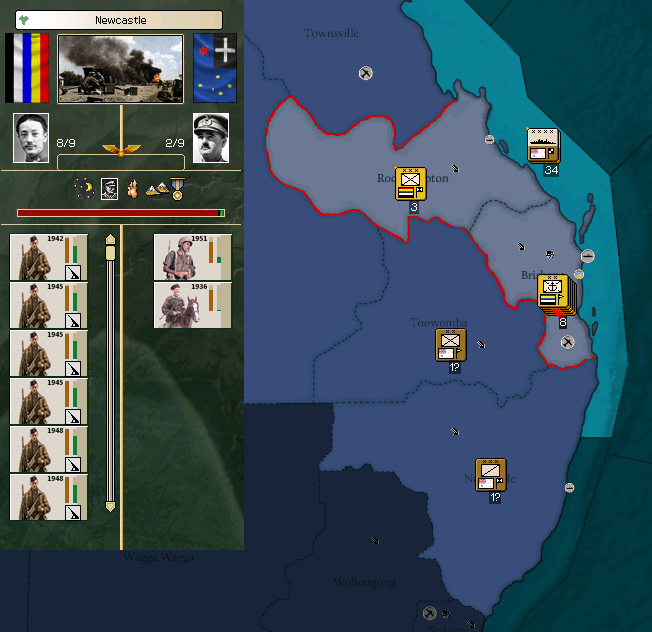
-------------------------
The Polish (aided by their allies fighting under Polish insignias) have wrecked through the thin Russo-SDC lines. Malorussia is in ruins and occupation, with only a ROCA corps defending Kiev fanatically. The lines in Belarus were pushed back a bit but the tide stopped after reinforcements arrived. The first attack, after Plan Peter was completed, happened in Grodno and Alytus over the River Neman. This is probably the most striking example of the Chinese use of the “attritional units”. They have made the Russian and tributary forces bleed the Germans dry while the Chinese 'iron fist' consisting of 5 corps struck north from Brest-Litovsk encircling 15 depleted enemy divisions.
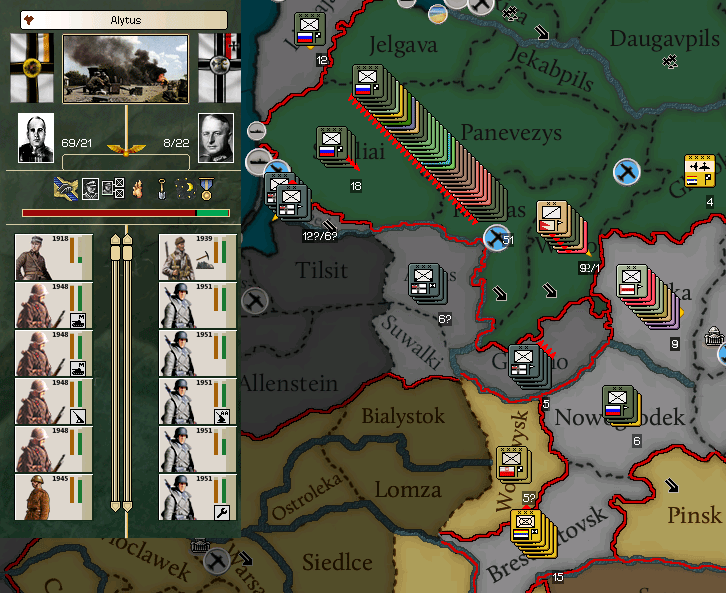
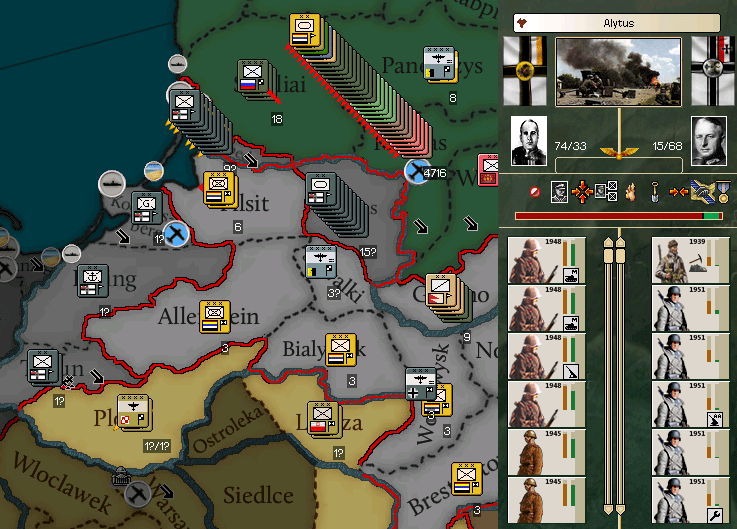
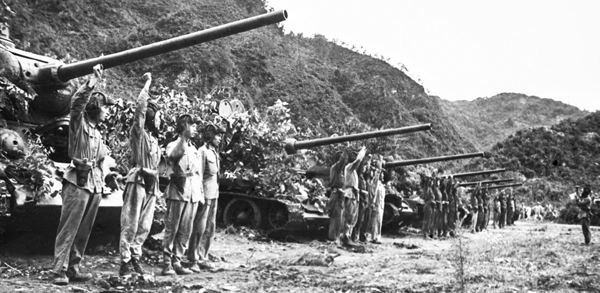
ROCA armoured divisions should always be added in the 'iron fist' complemented by mechanised infantry
as support but armoured divisions are still being deployed from the Estonian pocket
The Neman line was annihilated and collapsed. The situation is desperate for the Germans. Request for more troops from their Mitteleuropa allies was called, and the Heer is scraping at the bottom of the barrel. They have established the remains of their army over the east bank of the Vistula. Somehow, the German high command including the Kaiser refuses to give up Konigsberg. Desperate German counter-attack on Tilsit was repulsed after a massive reinforcement came to bolster the Chinese. The Chinese iron fist punches through Elbing to surround Konigsberg. Unfortunately, the corps within the 'iron fist' were exhausted and needed to resupply. They only resumed their advance after four days. After that, the German defenders were bleeding heavily. Their divisions depleted.
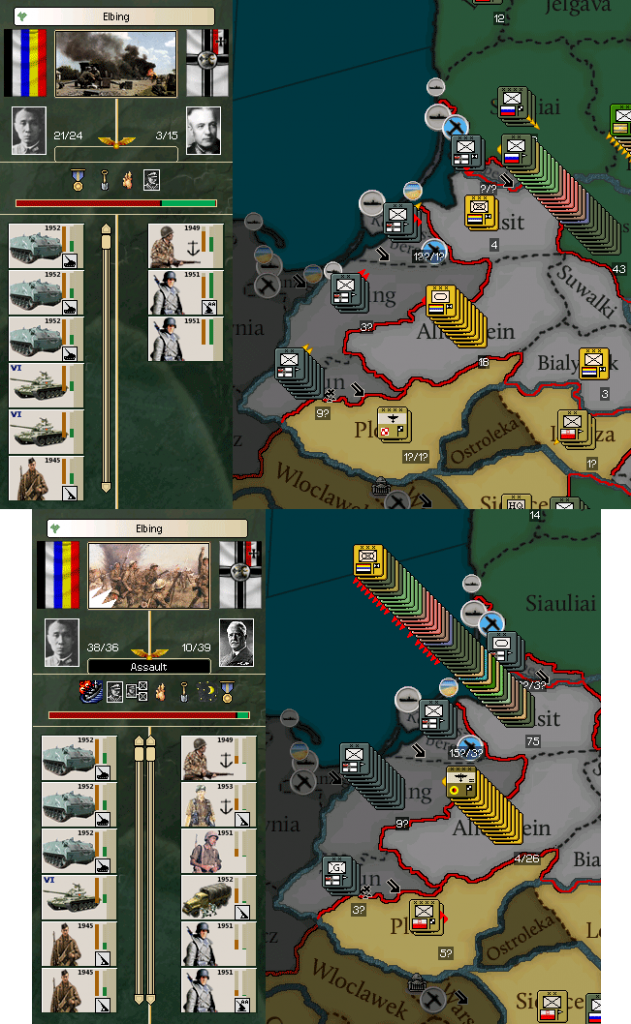
Just as mentioned before, the Polish army has occupied most of Malorussia. The only good news out of this disaster is that the capital Kiev stands unconquered thanks to the Chinese, and that the invasion force was cut off by a SDC advance towards the Romanian border.
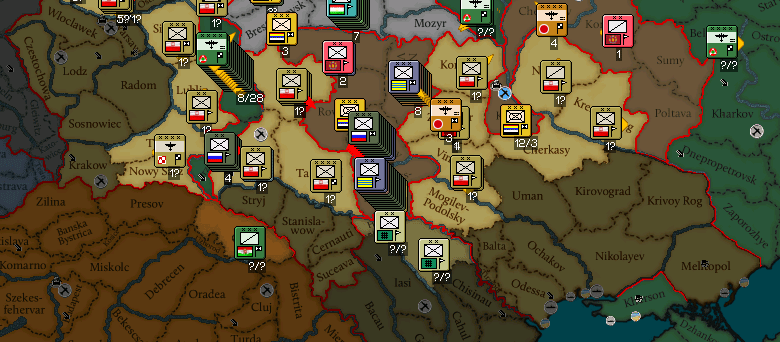
The Germans made a desperate counter-attack to push back the ROCA, and save Konigsberg. Alas, the regathered forces aren't enough to kick the ROCA out of Elbing. With the Germans repelled, the assault on the city began. The defenders are being chipped off one by one by the massive number of Russian and SDC troops. No matter how many they kill, the allies send ten more to replace one. The fall of Konigsberg seems inevitable.
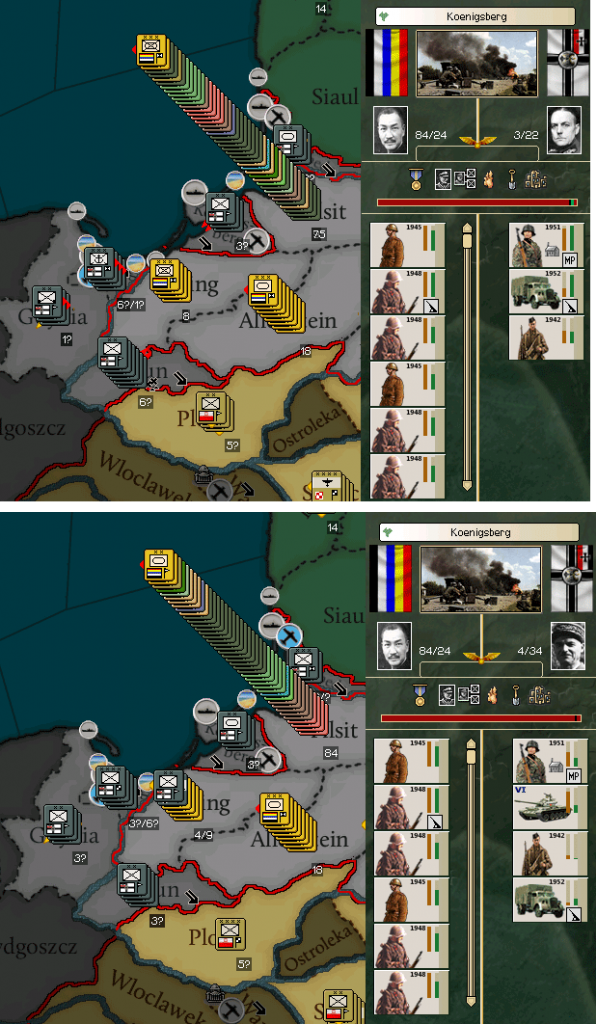
But underneath the surface, victorious alliance is falling apart. They don't know what to do after Konigsberg. Disagreements on plans have flared into arguments until the Chinese proclaimed that they refuses to cross the River Vistula to the German heartlands or southwards to crush Poland. The Russians have openly complain to the Chinese commanders of the heavy lifting done by their army while the Chinese 'iron fist' simply steamrolled through the enemy flanks. They have also brought up the indiscriminate and total strategic bombing of Russian cities and lands by the ROCAF, and the bloody losses of the 'Deathly Winter'. It is amazing how by the time the Germans are at the edge of their ropes and the Chinese refuses to finish the homestretch.
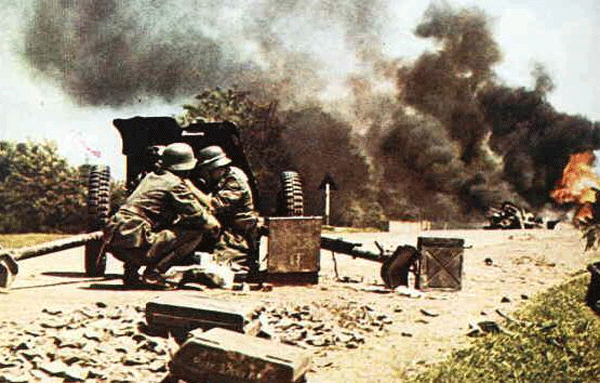
German anti-tank team
In Berlin, the perception is different. They do not speak of it publicly, but many believe Germany will be invaded as it is defended by a meagre force. The entire Imperial leadership now looks to their leader, Kaiser Wilhelm IV, and to their Christian God. Many didn't want to see Konigsberg fall. The field marshall who conducted the counter-attack in Elbing reported that the counter-attack failed due to the lack of manpower. Germany is running out of men. Once Konigsberg falls, the Chinese shall cross the Vistula River unstoppable towards the German heartland. The Kaiser himself fears of his position, even his life. His father and his grandfather won wars and expanded this empire, and he'll go down in history for ruining it.
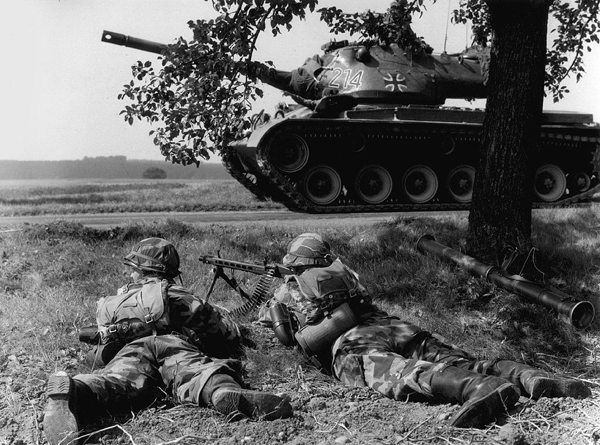
It is not known how many divisions left in the Vistula Line, but army intelligence estimates them at 20+ divisions
All that is left in his hand is just one more card: V4 bombs loaded with nuclear warheads. The same V4 bomb that fell on Dakar that put De Gaulle's France to its knees. However, to the dismay of many, the V4 bomb has a very limited range. It couldn't strike to Chinese cities without their bases in Singapore, Marshall islands, and Sri Lanka - all in Chinese hands. They just have to make do with what's available.
The Kaiser of the German Empire was left alone for nearly an hour. He gathered his court, and he spoke.
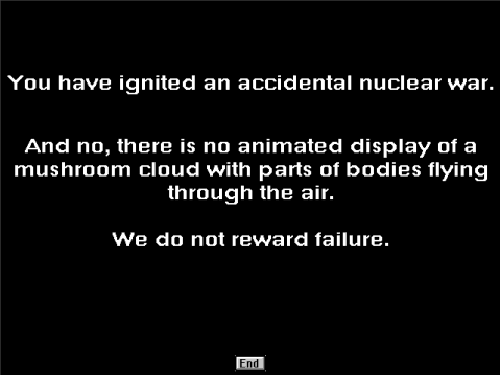
“Launch the missiles”
------------------------------------------------
-------------------------------------------------------------------------
I played Kurdistan one time. Spoilers: I did it at second attempt. So a Kurdistan AAR is totally possible.
Now, if you'll excuse me, it's time for me to watch AOT season finale!
Last edited:
Wait, so that's it? I didn't realize that Darkest Hour gave you a Game Over for a nuclear exchange.
Is this the end?
Oh no. There's more!Wait, so that's it? I didn't realize that Darkest Hour gave you a Game Over for a nuclear exchange.
Hmmm, increase the amount of troops attempting to overthrow the Polish and Australasian governments to 500,000! China has plenty of manpower for such a thing.
Of course, both sides having all their troops deployed in one country like this does happen to cause accidental apocalypse XD In BOP at least.
Of course, both sides having all their troops deployed in one country like this does happen to cause accidental apocalypse XD In BOP at least.
Ohhh, you really got me with that screen. xD
Oh my god you were serious. XD
How many more V's will Germany do?
LEL! At first I didn't understand this then I was like "oooohhhhh!" :laugh: That's a good tip actually, I learn to resort to just sending military aid if the enemy has many troops in it.Hmmm, increase the amount of troops attempting to overthrow the Polish and Australasian governments to 500,000! China has plenty of manpower for such a thing.
Of course, both sides having all their troops deployed in one country like this does happen to cause accidental apocalypse XD In BOP at least.
-------------------------------------------------------------------------
------------------------------------------------
The Stratocracy
The V4 lack the range to strike the Middle Republic without the German Far Eastern bases, however they are still a potent weapon. Indeed, they are plenty of targets in Eastern Europe for the Germans to hit. The bombs were dropped on Moscow, St. Petersburg, Tsaritsyn, Smolensk, Kiev, and Minsk for strategic bombardment. For tactical uses, they hit the allies surrounding Konigsberg, locations like Tilsit, Elbing, Allenstein, Bialystok were engulfed in atomic destruction. This large concentration of nuclear firepower descended to the entire main Russo-Chinese force in East Prussia. East Prussia was sacrificed for the rest of the Reich to survive. Three more were launched down south in the Poland-Ukraine frontline.

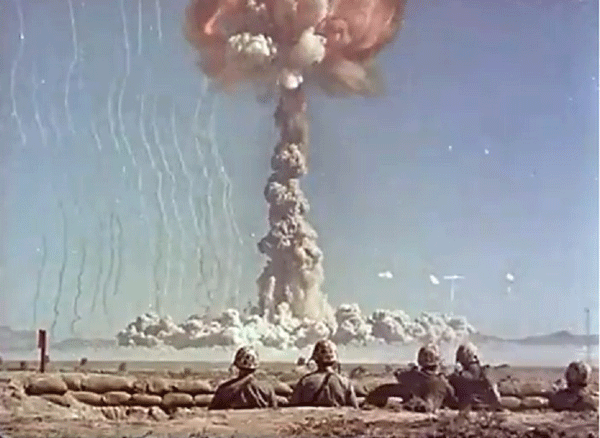
A ROCA photographer manage to take a snapshot of the Bialystok mushroom
Three generals were killed by the nuclear salvo, and thousands of frontline soldiers and officers were killed. Many of the survivors would go on to live but were contaminated with an invisible poison inside of them.
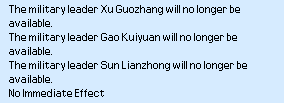
Just three? I guess I got lucky with the purge event
Chinese missiles couldn't reach German lands either, so they have to rely on the the ROCAF bombers to deliver vengeance. It was very impractical due to the strong aerial contest in Europe, especially now that the entire Austro-Hungarian airforce joined the fray. The ROCAF pilots still continue despite the difficulty by sending the entire bomber wing to serve as decoys for just one bomber. The first bomb was dropped in Konigsberg, wiping out all the rejoiced but exhausted soldiers; destroying all the divisions with the exception of one, which is heavily damaged. The next target was Berlin. The ROCAF bomber wing received heavy casualties during the Berlin mission, fortunately, the sole bomber carrying the payload manage to reach the capital of the German Empire. Another nuclear strike mission was given, this time to Prague. The damaged bomber wing received more losses, and the mission has to be aborted since the package bomber has taken serious damage. The bomber wing has to return to base. The other two bomber wings' missions on blasting Warsaw, Vienna and Budapest have ended in failure, and couldn't conduct any missions due to heavy losses on these missions. The Middle Republic only responded with just two nuclear strikes.
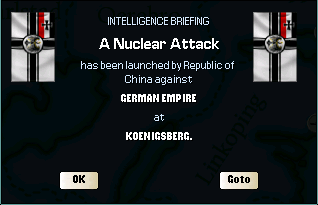
Forgot to take the Berlin strike
-------------------------
The damage against the human population and habitat was immense. The inner radius of the big cities like Moscow and Berlin were devoid of human live by the modern hydrogen bombs from both sides. State authority was greatly weakened. Public and private services were frozen with the exception of the emergency services. The damage against human heritage was also great. The Kremlin was destroyed, its red walls failed to protect it. The Brandenburg Gate tumbled. Priceless art, architecture, and culture were lost from these ruined cities.
Both the Tsar and the Kaiser survive the nuclear attacks. The Tsar was in Gomel where the main HQ is located during the German nuclear attack. The Kaiser left Berlin secretly after repeated pleading from his advisors and the news of the Konigsberg bombing.
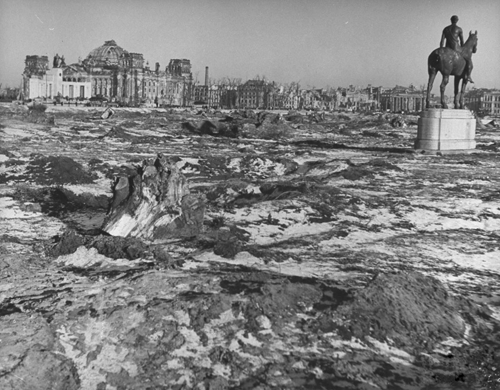
Berlin in ruins
The Union of America, for the first time, have broken out of its isolationist stance and have spoken out against the “aggressive and war-monger” Chinese. The nuclear bombing of Berlin and Konigsberg, and the attempted nuclear bombing of Prague, Warsaw, Vienna, and Budapest, was “a grave disgusting crime against civilisation and the community of nations. A barbarity that is unprecedented in history”. Somehow, the American President chose to ignore the bombings against the Russian Empire, never once mentioning it in his nation-wide speech. The American President's speech also put the Middle Republic in an uneasy situation, the President tries to change the public perception from isolationism to war by rallied the entire nation for a “great crusade for civilisation against the Oriental horde”. The state propaganda, and the power of the party-state's control over society would make the change of public perception an easy endeavour, preparing for war though would be a different story.
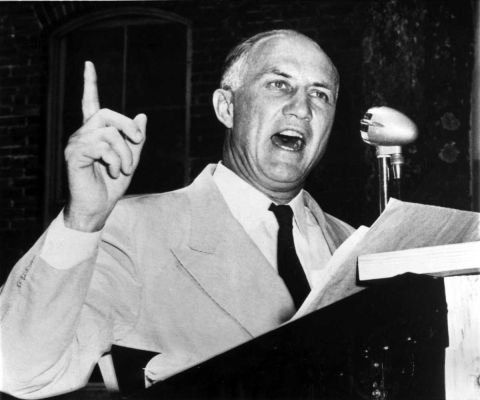
Strom Thurmond, President of the Union of America
-----------------------------
The friendship between the Shanghai Defence Coordination, and the Russian Empire crumbled. The Russians broke away from the allied hierarchy and are now conducting military operations independently. Certain individuals from both sides tried to put the two camps together but it was futile. Despite the cold relations, it is still in both sides' interest that Chinese forces would stay.
After the downward spiral of the Sino-Russian relations and the news of Union of America's preparations of war, Sun Li-Gen, the Field Marshall of the Armed Forces of the Republic, flew straight back to Nanjing, requesting that the Far East should be the Republic's primary focus, and that Europe would be a secondary one now that Russia has enough breathing space. The inflexible Young China government insists on carrying on the fight against the Germans, resume operational cooperation with the Russians, and advance to Berlin. “The Chinese people demanded it!” the Prime Minister said. But in Sun Li-Gen's mind, what the people really want is peace. The Field Marshall remained in Nanjing for a few more days hoping that he can still convince his superiors. It was a perfect decision. When news of the defeats in Australia streams back to Nanjing, the Field Marshall of China presses his point. The out-of-touch politicians of Nanjing insisted that Berlin is the main prize. The perfect vengeance against the European imperial colonialists. The Field Marshall had enough and went back to Europe.
The Field Marshall summoned all the generals in Europe, all whom he trusted. After a long day behind closed-doors, Sun Li-Gen and the field marshalls and generals of the ROCA have all decided to withdraw out of Europe, and head back to China to end this farce; with the exception of a few Chinese and tributary forces with orders to fall back and take defensive positions. This is clearly treason against the Middle Republic, but none in the ROCA and ROCAF European theatre respects the Young China Party, outsiders compare to the other parties descended from the Kuomintang.
But to gain the initiate over the government, they request that they shall fall back to recuperate. Indeed, the ROCA forces received heavy casualties. The rebel generals also ordered a tight lip over their subordinate officers directly involved. Any hesitating general can be easily persuade to join, it's easy once they have been given a choice on what they want on their chest; a medal or a bullet. The distance and the self-sabotage of communications between the European theatre and the home front disallowed any traitors to inform the government.
The rebel army reached the tattered city of Moscow seeing it all destroyed by the blast. They “occupied” the city temporarily, commandeered the ROCA logistics trains and other Russian trains they could gather from the blasted city, and went on to their journey towards the Chinese motherland, straining ROCA logistics and the Trans-Siberian Railway to its very limit.

Trans-Siberian Railway
It was only when they reached Mongolia were the plans made publicly to the troops. The highly biased and sensationalised information distributed to the war-exhausted veterans fuelled them with rage against the government. The reluctant ones or any dissident were met with shaming from their fellow troops. Of course, there are plenty of desertions, creating the phenomenon “lost soldiers of Mongolia”, many currently residing in the northern cities of Erdenet, Darkhan, where the rebellion was first made public; or in Urga, the largest city in Mongolia.
Once he received the confirmed reports of a coup d'etat in Mongolia, Field Marshall Qin Dechun, commander of the Coastal Defence Army (often dubbed outside China as “the Great Seawall of China”), activated its reserves. This time they shall not fight against an amphibious invasion, they shall fight against fellow Chinese inland. Unfortunately for him, it would take a while to activate the reserves giving the mobile army of the rebels valuable time as they move towards Beijing.
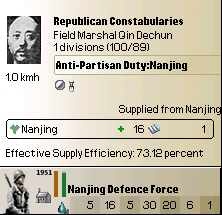
The Coastal Defence Army was establish when the Republic has no navy to speak of. It's also a very cheap alternative to defend her massive coastline against her enemies, mainly Japan. With the good battle record of the ROCN and the lack of seaborne invasion threats, the CDA fades into obscurity and decay. It is made up by a smaller part of full-time soldiers, and its larger part is made up of reservists who have other professions and trades in the nearby locations. Almost everyone in the CDA joined to enjoy the perks of the military, usually the uniform and the salary, without going into action and expend much personal effort. Ever since the war against Japan, the reserves were never called. The entire CDA is pure infantry equipped with standard artillery, usually placed at the end of the queue when it comes to modernising ROCA units. Its full-time troops received the standard training, but the reserves received less, and they all have zero experience. What's more, all of the veterans from the early CDA have been transferred to frontline units as quick replacements. This green force is going to fight the battle-hardened mechanised army of Sun Li-Gen.
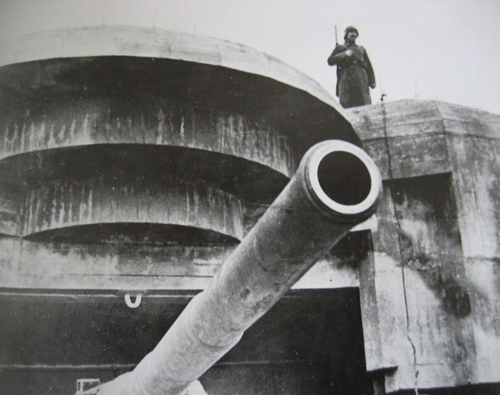
A sentry watches the ocean at a top of a pillbox.
They reached Beijing encountering three unprepared CDA corps, once outflanked and then encircled inside Beijing many surrendered to the rebels. The capture of Beijing isolated the northern CDA forces in Manchuria and Amur. The commanding officers and their men within this isolated region are reluctant to attack the rebels northward defences.
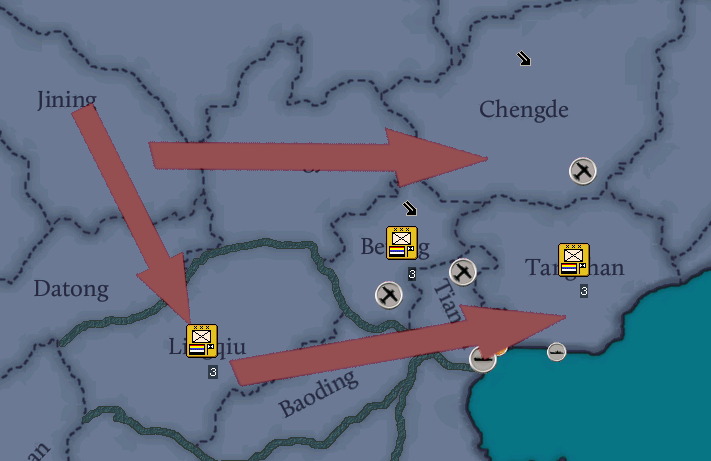
The rebels went south to Jinan where they met three more CDA corps, placing themselves behind the mighty Yellow River. Their tactics, again, are very basic. The troops and, more importantly, their tank-killing artillery are spread evenly along the line. The rebels simply smashed through any weak points in the flanks and attacked the rear. Not wanting to repeat Beijing, the CDA retreated once their flanks were breached. But the mechanised armies are are too fast that they overrun the loyalist force and melted away in mass surrender.
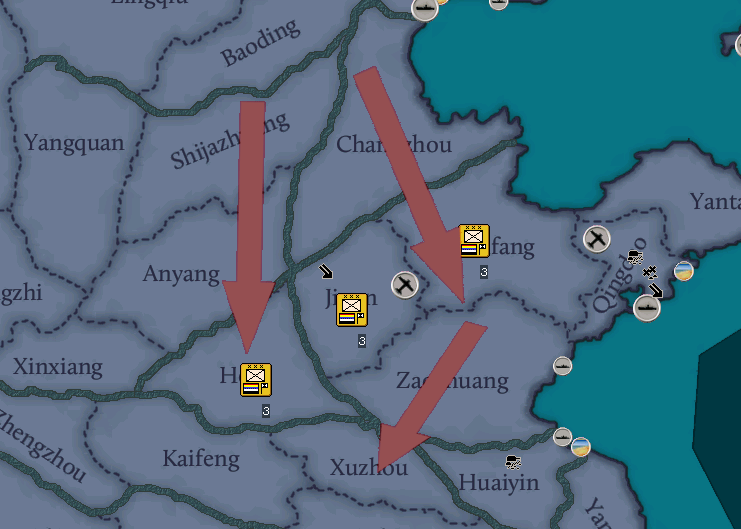
Before reaching Nanjing, they shall face the last resistance by the loyalists. The rebels main focus of breakthrough was the loyalist's left flank in Hefei. Hefei fell with masses of loyalist troops surrendering. A newly arrived CDA corps in Nanjing was ordered to counter-attack to Hefei in order to stop the rebel's advance through the rear. The counter-attack was easily repulsed. On the rebels left flank, they simply bypass the solid river defence, went through Yancheng without any resistance, and attack the weaker right flank of the loyalists. The centre tried to fall back to the capital but the progress is slow as they are under fire from the rebels from the centre. The advancing troops on the rear assaulted Shanghai and Nanjing. The former fell easily as rebel tanks entered without any opposition, only curious on-lookers of the public. The assault of the capital, on the other hand, was the fiercest battle of the coup d'etat where an artillery can fire directly to a tank or an APC on a narrow street and disable it. However, the assaulting rebels are very experienced and more numerous.
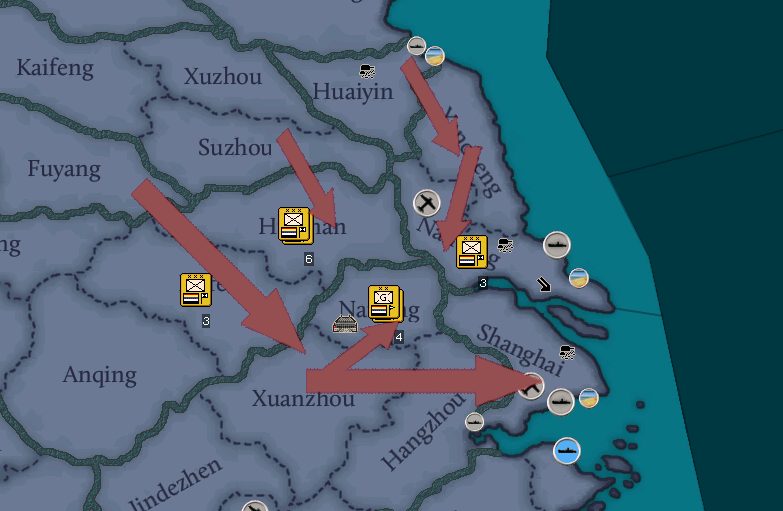
The Coastal Defence Army are more numerous, in total, but since they are too spread out along the Chinese coasts and islands, they cannot be utilised properly. Indeed, the CDA was designed and trained to stop seaborne attacks, not grouped together closely to fight land battles. Thus, the loyalists were forced to establish three different lines due to the swiftness of the rebels. Sun Li-Gen's fewer mobile army can easily form the 'iron fist' and smash through the weak points and outflank them. Smashing the more numerous loyalists one piece at a time, with superior quality and numbers.
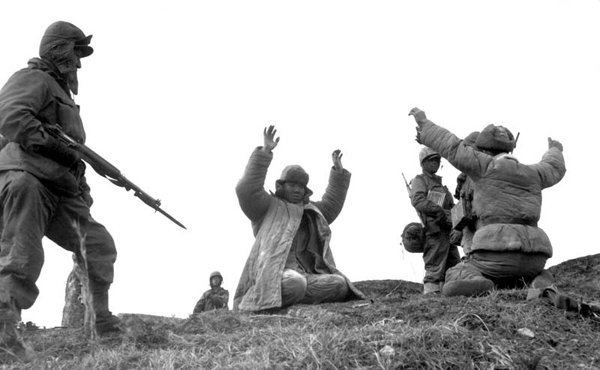
Loyalist soldiers surrenders
The crew of the 1st Tank Division, and the soldiers of the 19th and 30th Mechanised Infantry Division were the first to enter the capital and storm the Presidential Palace and the Head Ministry Office. The Parliament was also taken by the troops. The capital fell on the 17th of October 1954
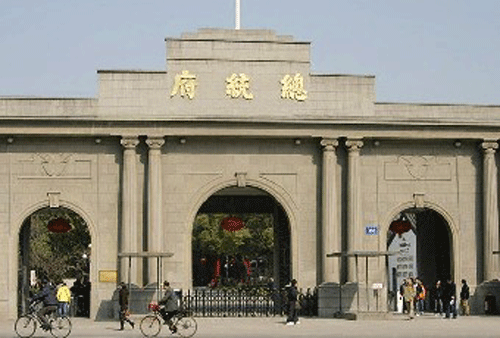
The Presidential Palace in Nanjing
The rebel's victory was total. There are no nearby forces that can challenge them. The Indochinese and the Koreans are reluctant on sending their troops over what they claim as 'an internal Chinese affair that we shall not intervene on', regardless they are all anxious on what China will become with this coup.
Interestingly, the rebels, headed by Field Marshall Sun Li-Gen, are not interested on gaining absolute power. After all, these are mostly the same underground veterans that kept the KMT alive after the German Intervention, and lead it to victory during the Changsha Revolution. Instead, the victorious rebels created an emergency committee. This is what was known as the Stratocracy Period.
The Stratocracy will be lead by a council of five figures, known as the Council of War and Security, and were called “The Five” by everyone.
These are:
- The Generalissimo of the Armed Forces of the Republic
- The Field Marshall of the Army
- The Grand Admiral of the Navy
- The Chief Air Marshall of the Air Force
- The Head Director of the Bureau of Statistics.
The Five was designed to be some sort of war ministry. The entire planning and direction will no longer be controlled by the Ministry. The Five, during this period, also have the ability to declare war or to sign peace treaties without Ministry or Parliament's approval. Putting themselves in a clear height over the civilian government, violating the Republic's constitution. The rest of the state powers remained under the Ministry and the Parliament's control. A number of Young China Party MPs have left Nanjing, enough to have a de-facto minority government in the Parliament. Weakening the civilian government more.

The Five became a part of popular fiction with several types of media making similar councils with similar powers.
After the coup d'etat, public dissent is in its all time high. The news of the coup, and the nuclear strikes and its horrific results were spread by the returning rebel troops, and spread further by informal media or by old fashion gossip. The pre-coup government also bombarded the public with exaggerated anti-rebel propaganda. The new council decided to fight back, by tightening the security (e.g. censorship) and send its own propaganda to public distribution. They also try to focus momentarily to consumer products, by supplying the market, it would make the prices of everyday goods lower.
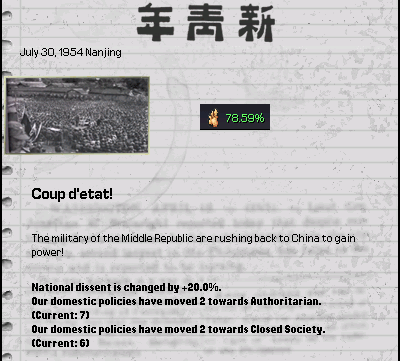
-------------------------
Fortress Brisbane
The advance south was ground to a halt after meeting strong resistance. They have surrounded Sydney but failed to capture it. The Chinese fall back to Newcastle and assist the battle in Toowoomba by attacking the right flank of the enemy. The defending forces in Toowoomba starts to grow as more Australasians were fed into the battle. By the 11th of September, the battle became bleak, but they press on.
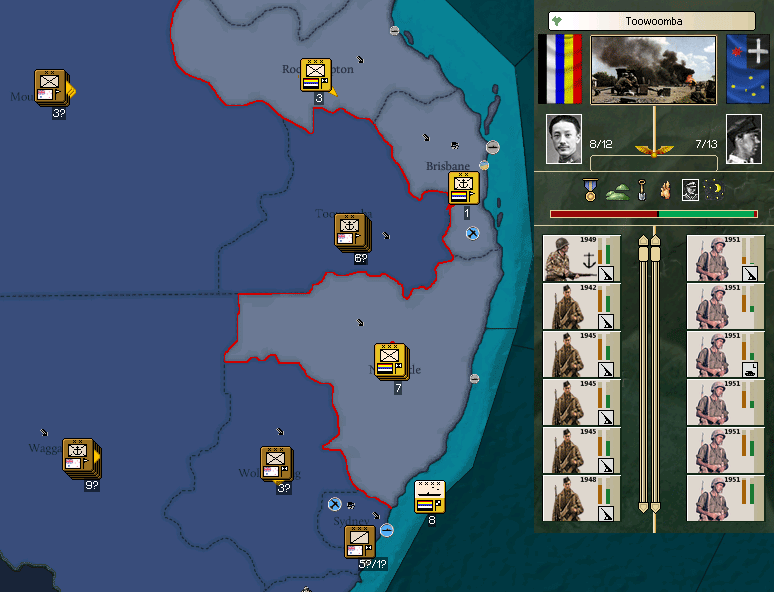
The battle of Toowoomba ended when the southern ROCA forces were pushed back by a new offensive by the Australasians. Newcastle was abandoned, and all rush back to Brisbane. The northern advances was also defeated by reinforcements sent from the Darwin area, and had to withdraw back to Brisbane to avoid being trapped. Operation Fox is a failure, it showed the limited amount of force in the Australian invasion. It may work in the Philippines or in Indonesia, but they have severely underestimated the Australasians. Its only redeeming achievement is the sought after foothold in Brisbane. More troops from New Guinea, and Indonesia were sent to Brisbane. Brisbane must hold at all cost!
With the new Council of War and Security, they will see that this issue will be solved quick. The Five shall not pull any punches. The rebel army; veteran fighters from Europe, have returned, and based themselves in the Guangdong region to rest, refit, and refill their formations.
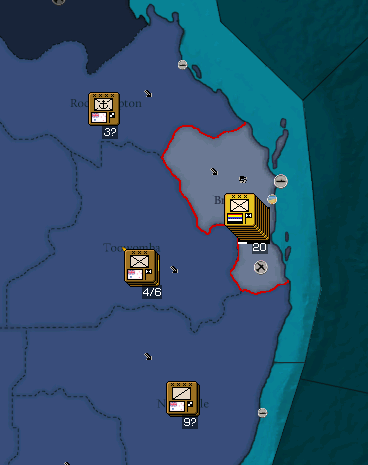
The Russians were pushed back out of East Prussia which is an expected outcome by the ROCA high command, but more importantly, the invading forces in Ukraine were wiped out. Now the line begins to stabilise.
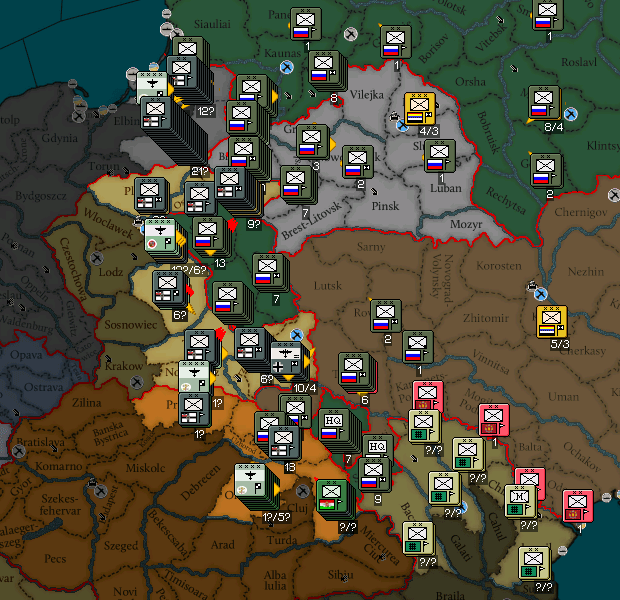
------------------------------------------------
-------------------------------------------------------------------------
Sadly, I found out that the AI doesn't build reactors. I hope the dissent on the allies is a good substitute
I got 10 for the nukes, and 20 for the coup
Last edited:
Well, I see where you got the idea of the Stratocracy from...Thank you Final Fantasy XII.
This is the best update of this AAR by now I must say! Limited nuclear exchange, treason and lack of communication in Western Front, military uprising, intense fight with loyalists and final success of the coup that brought stratocracy into power...just wow. I enjoyed every word of it. Now I really hope that this AAR won't end soon, but since Germans look still strong enough to offer challenge to your Russian (now more autonomous?) allies and AUS is getting quite aggressive against China, I think my fears won't get true too soon yet. Keep it up!
Coup? Not good...!
Not good...!
Btw:

Btw:
Schizophrenic, much?After the downward spiral of the Sino-Chinese relations and the news of Union of America's preparations of war, Sun Li-Gen, the Field Marshall of the Armed Forces of the Republic, flew straight back to Nanjing, requesting that the Far East should be the Republic's primary focus, and that Europe would be a secondary one now that Russia has enough breathing space.

